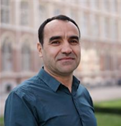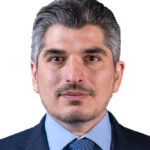Globally, 2.3 billion people still lack access to clean fuels and technologies for cooking (CFTs) today, with an overwhelming majority residing in rural areas. Without a dramatic increase in investment and action for scalable solutions, 1.9 billion people will remain without access to clean cooking in 2030. This stark reality highlights the urgency for action, underlined by the Clean Cooking Alliance’s (CCA) strategy, which emphasizes the need for annual investments of at least $10 billion to achieve universal clean cooking access by 2030, compared with the existing funding shortfall of less than 1.5% of that value $130 million each year).

زميل رئيسي- المناخ والاستدامة
كان أستاذًا للاقتصاد في جامعة ليل الكاثوليكية، ومديرًا لوحدة بحوث المدن الذكية والمستدامة. كما شغل مناصب مختلفة في المركز العلمي…
كان أستاذًا للاقتصاد في جامعة ليل الكاثوليكية، ومديرًا لوحدة بحوث المدن الذكية والمستدامة. كما شغل مناصب مختلفة في المركز العلمي والتقني للبناء في فرنسا، وقاد العديد من المشاريع التعاونية للوزارة الفرنسية للتحول البيئي والمفوضية الأوروبية. وهو خبير اقتصادي في مجالي الطاقة والبيئة، إذ يستند إلى مجالات الاقتصاد الجزئي التطبيقي ونمذجة الطاقة والاقتصاد القياسي. وقد نشر على نطاق واسع حول استهلاك الطاقة في المنازل، وسلوكيات توفير الطاقة، والتفضيل الفردي والاستثمار في كفاءة الطاقة، ونقص الوقود، والطاقة المتجددة، وسياسات الطاقة. وهو حاصل على التأهيل للإشراف على البحوث من جامعة أورليان، ودرجة الدكتوراه في الاقتصاد، ودرجة الماجستير في الاقتصاد التطبيقي ونظرية القرار من جامعة ليتورال، ودرجة الماجستير في الإحصاء. وقد نُشرت أعماله في المجلات، مثل إيكولوجيكال إيكونومكس، وذا إنيرجي جورنال، وإنيرجي إيكونومكس، وإيكونومك سيرفيز، وإنيرجي بوليسي، وإنفايرومنتل مانجمينت، وغيرها.
الخبرات
- اقتصاديات الطاقة والبيئة، كفاءة الطاقة، الطلب على الطاقة، نقص الوقود، سياسات الطاقة، سلوكيات توفير الطاقة، الاقتصاد القياسي التطبيقي، المدن الذكية والمستدامة
الإصدارات عرض جميع الإصدارات فاتح بلعيد
Carbon Capture and Renewable Energy Policies: Could Policy Harmonization be a Puzzle Piece to Solve the Electricity Crisis?
Globally, 2.3 billion people still lack access to clean fuels and technologies for cooking (CFTs)…
14th أكتوبر 2024Residential Electricity Consumption and Rebound Effects in Saudi Arabia: Insights into Bridging the Energy Efficiency Gap
Globally, 2.3 billion people still lack access to clean fuels and technologies for cooking (CFTs)…
1st سبتمبر 2024



